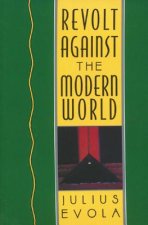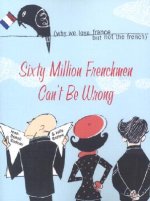
Kód: 04729907
Racial Order Of Things
Autor Roopali Mukherjee
Why did affirmative action programs implemented during the sixties and seventies suffer vicious assaults in the nineties? How were culturally resonant appeals to individualism and colorblindness turned around during the nineties t ... celý popis
- Jazyk:
 Angličtina
Angličtina - Väzba: Brožovaná
- Počet strán: 272
Nakladateľ: University of Minnesota Press, 2006
- Viac informácií o knihe

Mohlo by sa vám tiež páčiť
-

Ultrasonic Waves in Solid Media
77.54 € -

All the Days and Nights
14.19 € -18 % -

Capital Controls
13.78 € -5 % -

Latin American Thought
74.38 € -

Guide to Liverworts of North Carolina
81.94 € -

Frank Stewart's Bridge Club
17.67 € -12 % -

Art of War for Writers
14.81 € -19 %
Darčekový poukaz: Radosť zaručená
- Darujte poukaz v ľubovoľnej hodnote, a my sa postaráme o zvyšok.
- Poukaz sa vzťahuje na všetky produkty v našej ponuke.
- Elektronický poukaz si vytlačíte z e-mailu a môžete ho ihneď darovať.
- Platnosť poukazu je 12 mesiacov od dátumu vystavenia.
Viac informácií o knihe Racial Order Of Things
Nákupom získate 84 bodov
 Anotácia knihy
Anotácia knihy
Why did affirmative action programs implemented during the sixties and seventies suffer vicious assaults in the nineties? How were culturally resonant appeals to individualism and colorblindness turned around during the nineties to epitomize a "toxic system of quotas, preference, and set-asides"? In The Racial Order of Things, Roopali Mukherjee analyzes reversals and reinterpretations that mark the turn from the civil rights era of the sixties to the post-soul decade of the nineties. She begins by surveying a series of intractable disagreements over race- and gender-based social justice that have played out over the past decade, framed by the 1996 passage of California's Proposition 209 and the 2003 Supreme Court decision on admissions criteria at the University of Michigan. Examining political campaigns for and against affirmative action as well as films about dilemmas of gender and race in the mythic meritocracy, the book exposes a remarkable discursive tug-of-war over antidiscrimination policies during the nineties. Highlighting the ways in which categories such as "blackness" and "women" have operated in these debates, Mukherjee sees the public policy process as a key site where cultural identities are formed, recognized, and discarded. Considering mainstream media, including Hollywood films like Disclosure, G.I. Jane, Courage under Fire, and The Contender, Mukherjee focuses on conflicts following the introduction of women and blacks into the workplace. She explores the politics of public memory about the civil rights era through the lens of feature film, documentary, and network news. Using newspaper articles and legislative records, Mukherjee provides a comparative reading ofnarratives and counternarratives of the debate surrounding the 1964 Civil Rights Act and anti-affirmative action campaigns of the neoliberal nineties. Balancing policy narrative, cinematic reading, and conceptual analysis, Mukherjee demonstrates a shifting and paradoxical racia
 Parametre knihy
Parametre knihy
Zaradenie knihy Knihy po anglicky Society & social sciences Sociology & anthropology Anthropology
34.12 €
- Celý názov: Racial Order Of Things
- Podnázov: Cultural Imaginaries Of The Post-Soul Era
- Autor: Roopali Mukherjee
- Jazyk:
 Angličtina
Angličtina - Väzba: Brožovaná
- Počet strán: 272
- EAN: 9780816647064
- ISBN: 0816647062
- ID: 04729907
- Nakladateľ: University of Minnesota Press
- Hmotnosť: 390 g
- Rozmery: 229 × 149 × 16 mm
- Dátum vydania: 01. July 2006
Obľúbené z iného súdka
-

How Forests Think
38.82 € -

Nordic Theory of Everything
11.13 € -25 % -

Sacred Bee in Ancient Times and Folklore
13.68 € -28 % -

Revolt Against the Modern World
24.41 € -21 % -

Combatting Cult Mind Control
20.32 € -

Utopia Of Rules
17.16 € -19 % -

Protestant Ethic and Other Writings
16.13 € -31 % -

Crowd
10.62 € -20 % -

Exercised
12.97 € -25 % -

Watching the English
10.51 € -29 % -

Crisis of the Modern World
17.05 € -1 % -

Evolution of the Human Head
60.07 € -1 % -

Cambridge Encyclopedia of Human Evolution
101.05 € -

Sixty Million Frenchmen Can't Be Wrong
17.97 € -22 % -

Secret of Our Success
18.69 € -12 % -

Patterning Instinct
19.61 € -28 % -

Peoplewatching
17.46 € -28 % -

How Natives Think
22.16 € -

Bones of Contention
46.89 € -

Exploration and Discovery - Treasures of the Yale Peabody Museum of Natural History
25.23 € -9 % -

War, Peace, and Human Nature
77.75 € -

Homo Necans
46.79 € -

Chaos and Governance in the Modern World System
32.28 € -10 % -

School and Society
8.37 € -19 % -

Trickster Makes This World
11.43 € -28 % -

Consider The Lobster
10.62 € -21 % -

Limits to Medicine
14.70 € -24 % -

Totem and Taboo
6.63 € -29 % -

Face and Mask
59.05 € -

Kill All Normies - Online culture wars from 4chan and Tumblr to Trump and the alt-right
11.74 € -20 % -

Fragments of an Anarchist Anthropology
13.17 € -8 % -

Catching Fire
13.48 € -28 % -

Designs for the Pluriverse
35.55 € -

Society Against the State
24.21 € -3 % -

Ayahuasca Visions
32.59 € -20 % -

Ritual
11.33 € -31 % -

Five Roles of a Master Herder
16.75 € -17 % -

Human Story
13.48 € -28 % -

On Saudi Arabia
16.54 € -22 % -

Human Diversity
38 € -

Small Places, Large Issues
25.74 € -10 % -

Why Is Sex Fun?
10.41 € -28 % -

Great Paleolithic War
60.68 € -10 % -

Botany of Desire
15.42 € -28 % -

Stone Age Economics
20.83 € -14 % -

Possibilities
19.30 € -20 % -

Oxford Handbook of Language Evolution
53.33 € -

On Kings
30.44 € -5 % -

Nature, Ritual, and Society in Japan's Ryukyu Islands
72.13 €
Osobný odber Bratislava a 2642 dalších
Copyright ©2008-24 najlacnejsie-knihy.sk Všetky práva vyhradenéSúkromieCookies



 21 miliónov titulov
21 miliónov titulov Vrátenie do mesiaca
Vrátenie do mesiaca 02/210 210 99 (8-15.30h)
02/210 210 99 (8-15.30h)